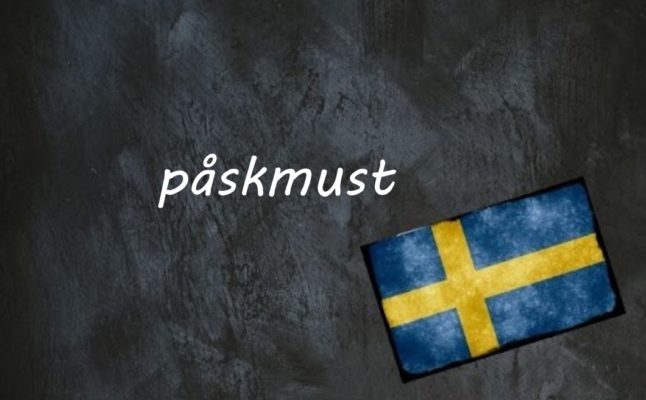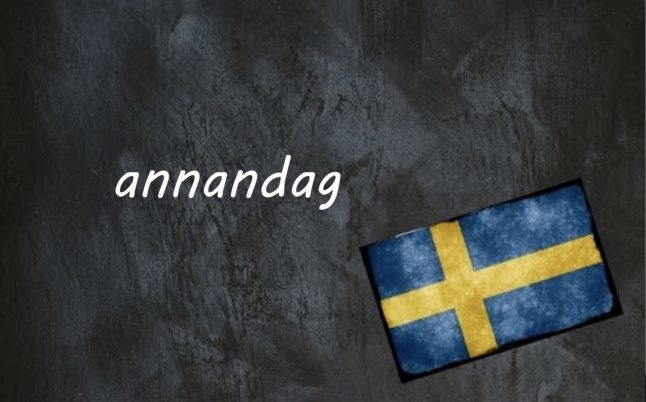Påskmust roughly means “Easter soda”, but most Swenglish speakers use the original word even when speaking Swedish.
We take a look at the history of the word påsk (Easter) in this word of the day, but what about the must?
It comes from the Latin term vinum mustum (literally “young wine”), but before you get too excited, the must filling supermarket shelves at the moment is non-alcoholic (otherwise of course, it wouldn’t be allowed in Swedish supermarkets at all).
- Don’t miss any of our Swedish words and expressions of the day by downloading our new app (available on Apple and Android) and then selecting the Swedish Word of the Day in your Notification options via the User button
The technique, however, is mostly unchanged: must is unfiltered juice from berries or fruit, which doesn’t ferment. The term mustus in Latin, meaning “fresh”, “young” or “new” is actually linked to the Greek word μύδος (“moisture”).
A place where this kind of juice is made is called a musteri, and there are lots of types of must as well as the seasonally themed varieties: äppelmust (apple juice), körsbärsmust (cherry juice), and lingonmust (lingonberry juice) for example).
Påskmust and its wintery counterpart julmust (Christmas soda) are made by adding the fruity syrup (the recipes are a closely guarded secret) to carbonated water, and they are sold in huge quantities around both holidays. The earliest adverts for påskmust date back to 1947, but it is becoming ever more popular, with sales rapidly increasing over recent years.
The malty flavour is said to pair especially well with the traditional festive food of herring, meats, and more herring.
If you want to start a controversial discussion at fika or around a påskbord (like a julbord or smörgåsbord, but at Easter), pose the question of whether julmust and påskmust are one and the same. While the labels show different seasonal scenes, the tastes are suspiciously similar.
It seems that even manufacturers have admitted the ingredients of both drinks are identical, even if Carlsberg – the producer of the popular Apotekarnes brand – claim that the storage, occasion, and experience of the two drinks lead to differences in the perceived taste.
READ ALSO: Six ways the Swedes celebrate Easter
Under påskhelgen dricker svenskar mer än 10 miljoner liter påskmust
During the Easter weekend, Swedes drink more than ten million litres of påskmust
Är julmust och påskmust samma sak?
Are julmust and påskmust the same thing?



 Please whitelist us to continue reading.
Please whitelist us to continue reading.
Member comments